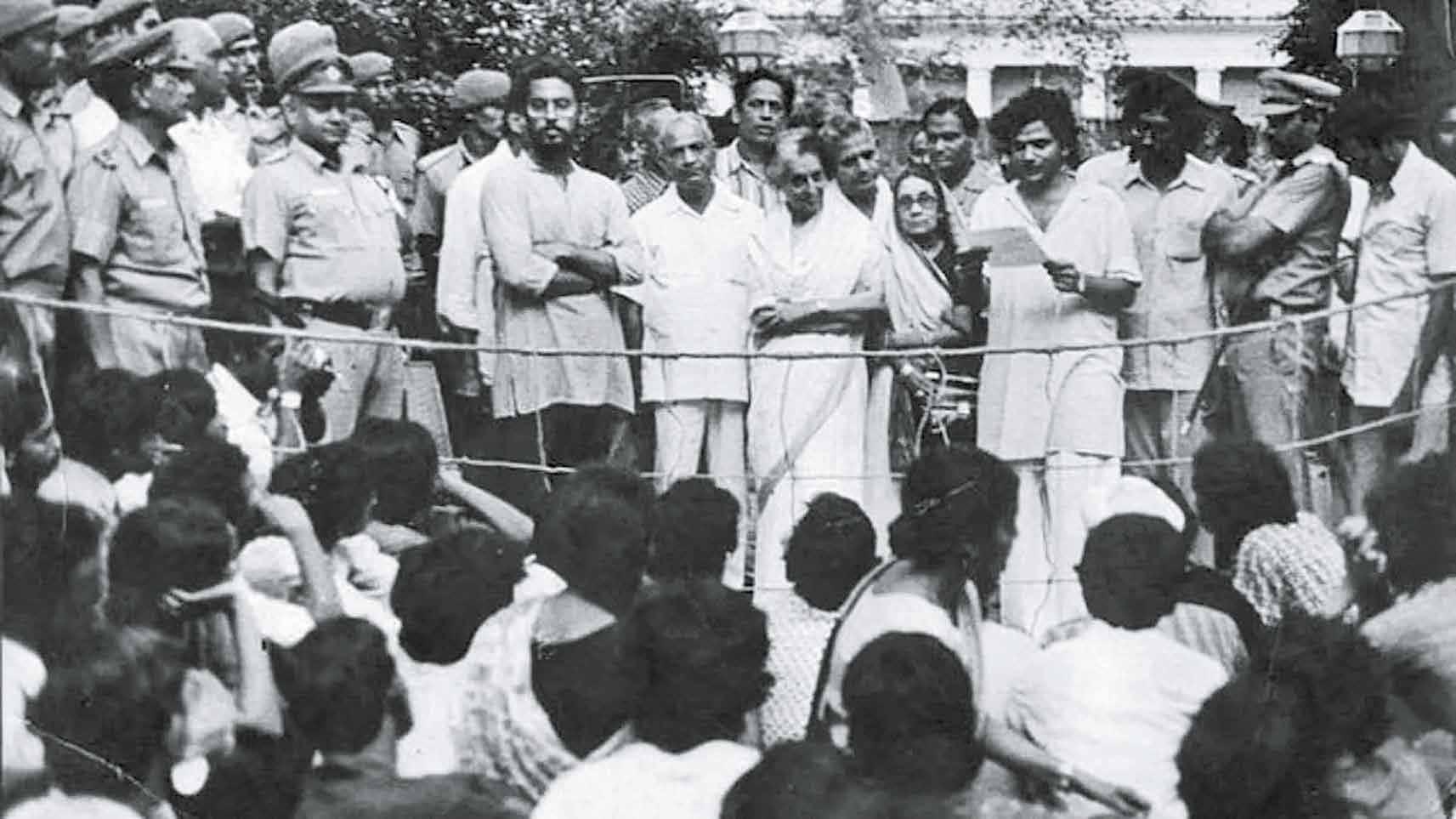
THE death of Sitaram Yechury threw up a black-andwhite photo of him in 1977, reading an indictment of Indira Gandhi in her presence. In that photo, Yechury, the president of the Jawaharlal Nehru University (JNU) Students' Union at the time, is asking that she resign as chancellor of the university because she had lost the post-Emergency general election, and she held that honorary office by virtue of being the prime minister of India. Yechury had been jailed during the Emergency and this blackand-white picture of a tousled student leader in an oversized kurta-pyjama, publicly holding a prime minister to account as she looks on, smiling, seems an image from another country...the safely distant past.
I was 20 when that photo was taken, five years younger than Yechury and much too prudent to have risked imprisonment through my second and third years as an undergraduate in Delhi University, but I remember the sense of release when All India Radio announced in an evening broadcast that the Congress (I) had lost the election, and Gandhi, her seat. I was living in Delhi University at the time, with my aunt, who was a lecturer there. When I relayed the news, she was still for a moment. Hai bechari (poor thing), she said, and went back to combing her hair.
For her and my parents' generation, Indira was still Panditji's daughter. Even as they were oppressed by her authoritarianism, she remained a living reminder of the early promise of the republic. I was nine years old when she became prime minister. My generation was defined by her time at the top, from 1966 when she succeeded Lal Bahadur Shastri when he died unexpectedly in Tashkent, to 1984 when she was assassinated. My cohort's understanding of the purpose of the Indian state and India's place in the world, our idea of India was either constituted by her government's rhetoric or shaped by our opposition to it.
この記事は Outlook の October 01, 2024 版に掲載されています。
7 日間の Magzter GOLD 無料トライアルを開始して、何千もの厳選されたプレミアム ストーリー、9,000 以上の雑誌や新聞にアクセスしてください。
すでに購読者です ? サインイン
この記事は Outlook の October 01, 2024 版に掲載されています。
7 日間の Magzter GOLD 無料トライアルを開始して、何千もの厳選されたプレミアム ストーリー、9,000 以上の雑誌や新聞にアクセスしてください。
すでに購読者です? サインイン

Layers Of Lear
Director Rajat Kapoor and actor Vinay Pathak's ode to Shakespeare is an experience to behold

Loss and Longing
Memories can be painful, but they also make life more meaningful

Suprabhatham Sub Judice
M.S. Subbulakshmi decided the fate of her memorials a long time ago

Fortress of Desire
A performance titled 'A Streetcart Named Desire', featuring Indian and international artists and performers, explored different desires through an unusual act on a full moon night at the Gwalior Fort

Of Hope and Hopelessness
The body appears as light in Payal Kapadia's film

Ruptured Lives
A visit to Bangladesh in 2010 shaped the author's novel, a sensitively sketched tale of migrants' struggles

The Big Book
The Big Book of Odia Literature is a groundbreaking work that provides readers with a comprehensive introduction to the rich and varied literary traditions of Odisha

How to Refuse the Generous Thief
The poet uses all the available arsenal in English to write the most anti-colonial poetry

The Freedom Compartment
#traindiaries is a photo journal shot in the ladies coaches of Mumbai locals. It explores how women engage and familiarise themselves with spaces by building relationships with complete strangers

Love, Up in the Clouds
Manikbabur Megh is an unusual love story about a man falling for a cloud. Amborish Roychoudhury discusses the process of Manikbabu's creation with actor Chandan Sen and director Abhinandan Banerjee